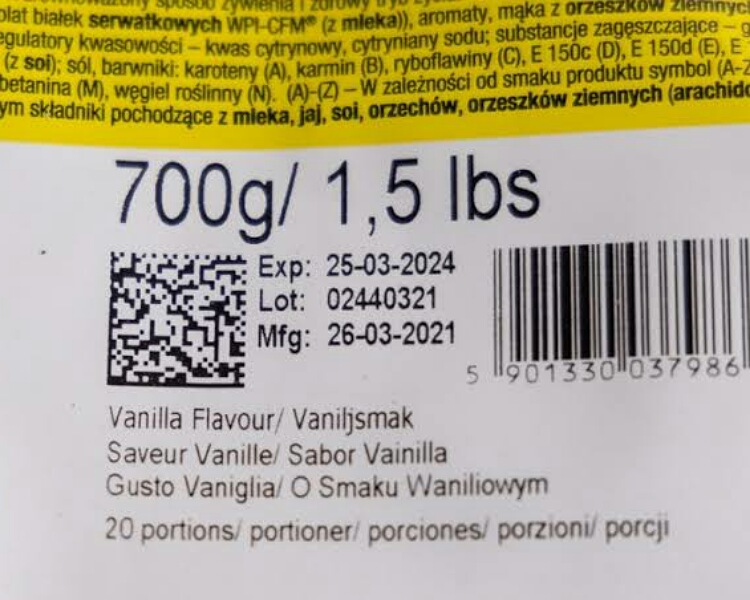Protein powders as supplements are popular in this age. Gyms have cropped up in different regions of the world.
Personal trainers insist on protein supplements to lose weight and gain muscles. Every health-conscious person consumes these powders as drinks or smoothies. If taken properly, it benefits.
Sometimes, you may have a tin of powder that is nearing the expiry date printed on it. You wonder whether it is safe to consume the powder after the expiry date. What is the shelf life of powdered protein?
Protein powders and sources
Increasingly, protein powders in the form of supplements are being used by health-conscious individuals. Most of it is taken either before and/or after the gym sessions. The gym-goer consumes it mixed in water or milk or on a smoothie.

The powder assists in muscle building and regeneration. It also causes weight loss along with the workout regime. It is a relatively less expensive and more convenient way to increase protein intake. But fresh foods are always the best for it.
The sources of these powders are varied. They are made from milk (casein or whey protein), soy, animal collagen, egg white, rice, peas, or lately insects. Usually, one product has protein from one source.
But at times, it might be from multiple sources to reduce cost and improve bioavailability. They may have other added ingredients such as fats, carbs, minerals, fiber, and vitamins.
Some have other food additives too and preservatives.
Benefits of these powders
The protein powders are useful, as mentioned above, to build body mass. It helps repair torn and sore muscles. They decrease muscle pain and overcome tiredness.
These powders also assist in cutting down on body fat. Hence, weight loss is achieved when its consumption is coupled with exercise.

The protein powder is also effective in the stabilization of blood sugar. Hence it benefits diabetics who are concerned about high blood sugar spikes post meals.
The powders are beneficial for people with high uncontrolled blood pressure readings. They bring high blood pressure under control.
Additionally, the proteins in this powder assist bone health and make the bones stronger. Proteins and calcium with phosphorus and vitamin D are a must for bone-building.
Shelf life of these powders
Manufacturers do put an expiry date on the protein supplements. There is a ‘best before date on it.
Whey protein powder has a shelf life of 12 months. It is 19 months under optimal conditions of 21 degrees Celsius and 35% humidity. This drops to 9 months if the temperature is higher at 35 degrees Celsius.

There are certainly added preservatives in the powders to prolong shelf life. These include salt, lecithin, or maltodextrin. These prolong the longevity to 2 years.
However, proteins are fewer moist foods. Hence bacterial growth in them is minimal. Therefore, the product is safe to consume even after the expiry date. But it may lose its potency or quality.
It will become substandard and hence less fit to provide the assured protein amount. For instance, lysine falls from 5.5% to 4.2% in 12 months in whey protein when stored optimally.
Also, read: Peanuts: heart-friendly and protein-rich, prolongs life!
If the powder is not stored optimally, it undergoes oxidation and produces certain substances that can alter its taste. Signs of a rancid powder are bad taste, bad smell, color change, or clumping. Eating such spoiled powder can sicken you.
Throw away such a powder and buy a new tin.
